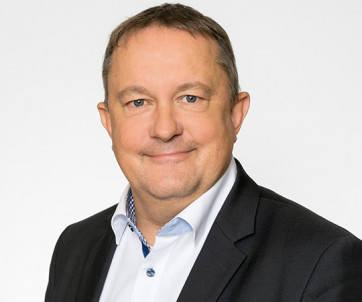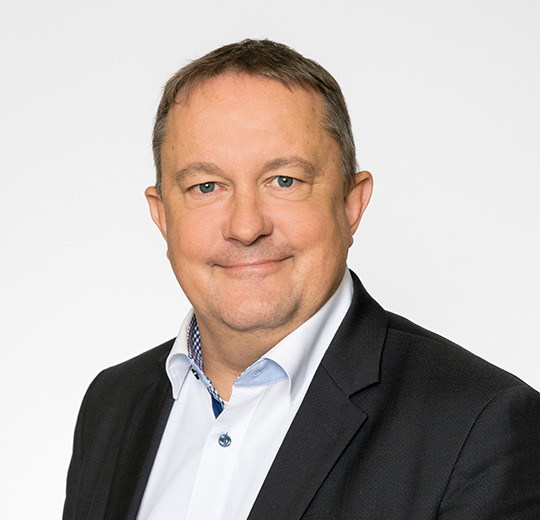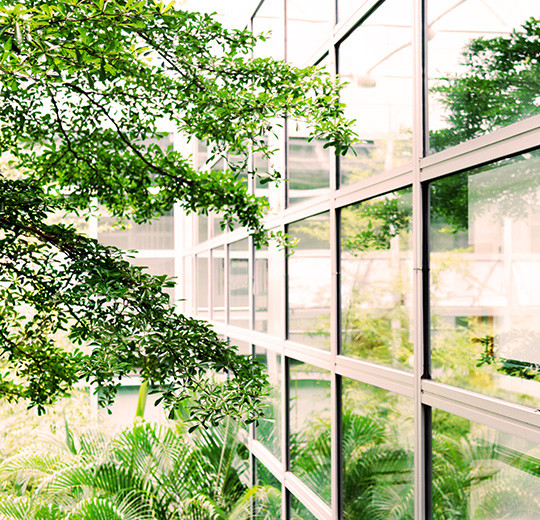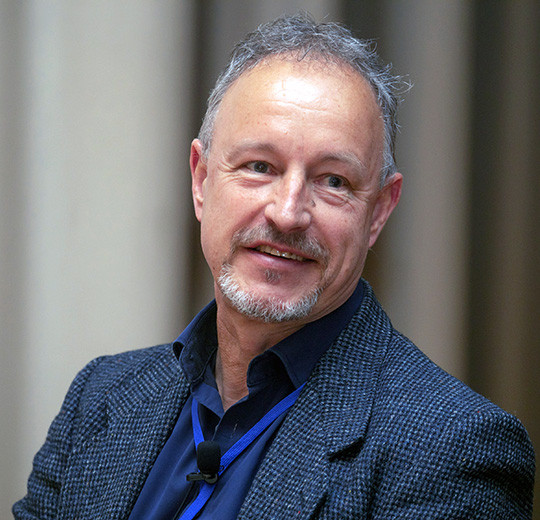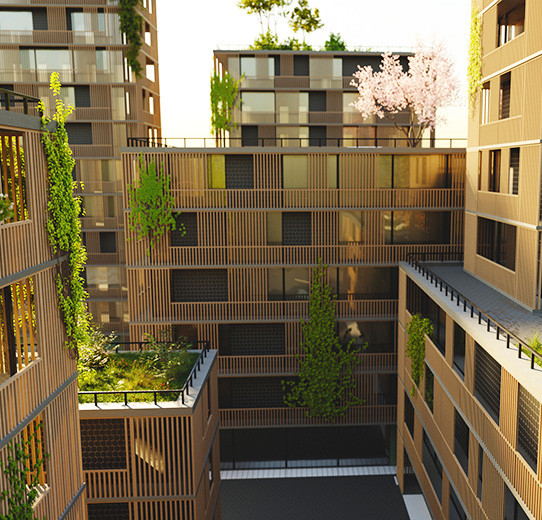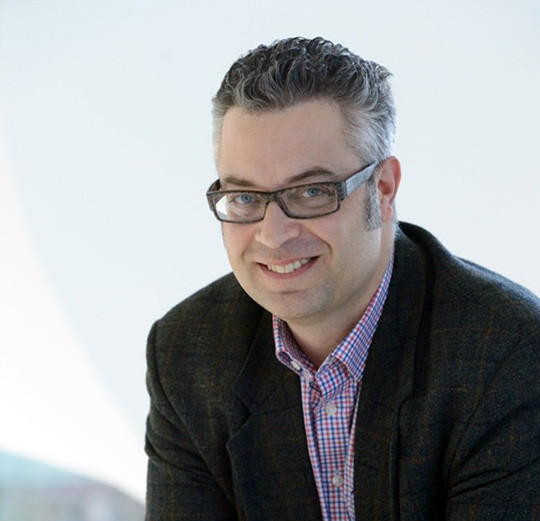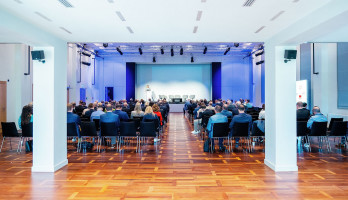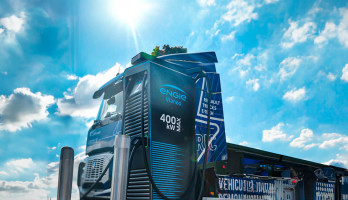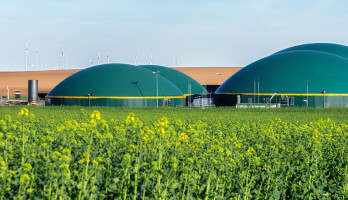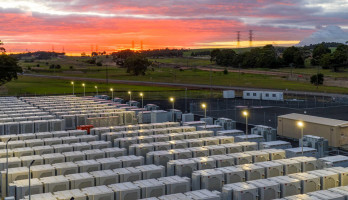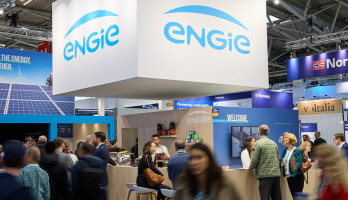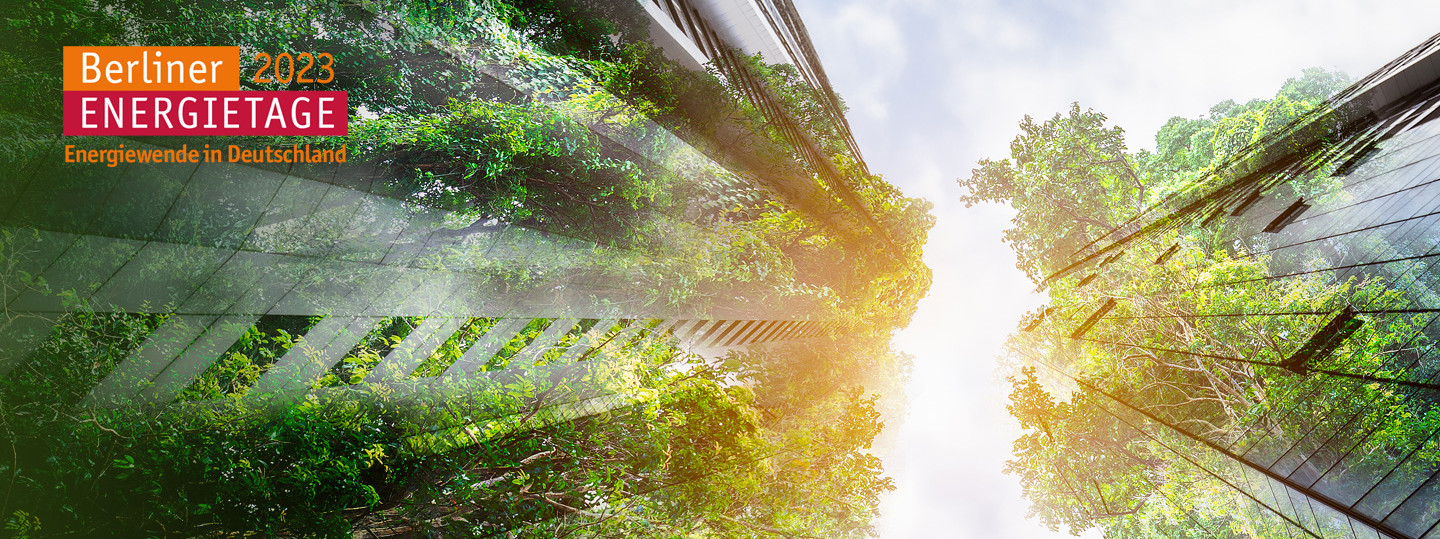
Heat transition rethought: fact checking and more at the Berlin Energy Days
In this article we give you an overview of our panel "X-Files of the Heat Transition" at the Berlin Energy Days on 3 May 2023. This time we talked to experts from the ENGIE Group and invited guests about the status quo of the heat transition in Germany. This much in advance: Some innovative points surprised even the moderator.
Climate thriller in the building sector: Unsolved cases revisited
For the sixth time, we are at the Berlin Energy Days with a panel on buildings and neighbourhoods. This year we have taken up the topic of heat. Under the motto "The X-Files of the Heat Transition", we explored numerous unresolved questions about green heat, the upcoming wave of renovations and an efficient and resilient supply network. This year, six experts from the energy industry spoke about the major challenges and solutions of the heat transition. Almost 450 participants followed the panel's presentations and accompanying discussions.
Heating supply - green, efficient and resilient
To underline the urgency of the issue: in 2050 - i.e. in less than three decades - the building sector in Germany should be almost climate-neutral. A true task of the century for politics, for the municipal sector, for the housing sector and for industry. At present, we still spend about half of the energy in Germany on heat. The building sector is also (still) responsible for one third of CO2 emissions in Germany. Much still needs to be done here. In terms of heat demand, Germany needs to cut back considerably. According to the federal government, the goal is a reduction of 30 to 50 percent in the building sector.
How can we succeed in the heat transition? To this end, our moderator Christian Noll, Executive Director of the Deutsche Unternehmensinitiative Energieeffizienz e. V. (DENEFF), spoke with Dr Frank Höpner, Head of Strategy and Energy Policy at ENGIE Germany, as well as with experts from the energy industry. The panel highlighted the status quo of the heat transition and at the same time presented scenarios and new approaches on how to achieve an economical and green heat supply in practice. Together with our guests, we showed what is politically planned and practically feasible and where the heat transition is already successfully underway.
Focal points of "The X Files of the Heat Transition" in 2023
The guiding questions of the panel revolved around, among other things,
- the reduction of the heat demand in the building sector through renovation,
- efficient energy infrastructures,
- the clarification whether and how heat generation should be centralised or decentralised,
- the origine of green fuels and
- the role of modern technologies like green hydrogen.
Heat Turnaround - with Frank Höpner and Peter Mellwig
Together with Frank Höpner, Peter Mellwig, Head of the Energy Department at the Institute for Energy and Environmental Research Heidelberg (ifeu), subjected the heat transition to a fact check.
He made clear that the renovation of the existing building stock is a major success factor for the heat transition. Outdated buildings often consume fifteen to twenty times more heat energy than properties with modern insulation standards. Only renovation makes it possible to reduce the overall heat demand of the numerous existing buildings, which is imperative for the future. Peter Mellwig mentioned necessary renovation rates from current energy scenarios of 1.7 to 1.9 percent. In this respect, it is important to shorten refurbishment cycles as much as possible and thus create new incentives, said the expert. As an outlook, Peter Mellwig concluded that, according to forecasts, heat pumps and district heating networks will cover the majority of the heat energy demand in the building sector in the future.
Anselm Laube: Municipal supply in existing buildings via low temperature
Anselm Laube took up this point. For the managing director of the Ludwigsburger Energieagentur LEA e. V. association, an efficient heating network is only possible with efficient houses. Only when building efficiency is taken into account, a district heating network can be operated at lower temperatures and thus be efficient and renewable.
Anselm Laube demonstrated how this can be achieved in practice with a pioneering project for municipal heat planning in Steinheim an der Murr. There, a supply concept is being realised via a new low-temperature heat network. The special feature: it is a low-temperature supply in an existing building - not as usual in a new building. A local supply network that works with low temperatures saves significantly more resources. Among other things, the project recorded savings of almost 40 per cent in electricity consumption by heat pumps and an almost 20 per cent higher yield from local solar thermal systems. This is made possible by a clever conversion of the existing buildings in terms of drinking water supply and space heating by enlarging the heating surfaces.
Jörg Zander on (unfortunately) untapped heat potential in urban areas
Jörg Zander is working for the Charlottenburg-Wilmersdorf district in Berlin. He presented the municipal heat planning using the example of Mierendorffinsel. This is a classic Berlin existing neighbourhood with many different types of buildings - from the Wilhelminian period to modern construction years. And in order to supply these efficiently with green heat, a well thought-out strategy is needed.
The special feature of the area: Two sewage pressure pipelines run through the neighbourhood, offering a previously unused cumulative heat extraction potential of 10 MW. Thus, a large-scale heat supply for the neighbourhood via wastewater would be conceivable. An innovative idea that, as Jörg Zander pointed out, has so far failed in practice. The technical implementation is not the problem. Urban spaces like the Mierendorffinsel are so heterogeneously structured that they are only capable of limited strategies, the speaker described. Numerous corporations, owners' associations and individuals make it almost impossible to realise cross-building and cross-property solutions. Jörg Zander sees a need for political action here: there is a lack of regulatory instruments that practically enable a heat transition on site. For example, the implementation of an intelligent concept for the district, using existing waste heat pipes for the heat walls in the Berlin neighbourhood, is currently still waiting.
Dr. Lars Dittmann: Three important levers for the climate path in the building sector
Dr Lars Dittmann, Head of the Climate-Neutral Building Stock Department at Vonovia SE, moved in a much more homogeneous ownership environment. The housing company manages numerous small and larger neighbourhoods throughout Germany. In his presentation, Dr Lars Dittmann talked about the Group's heat transition strategy and its successes to date. In this regard, he mentioned three key levers:
- Continuation of comprehensive energy refurbishment measures in the building stock
- Replacement of conventional heating systems with hybrid systems and heat pumps, the installation of photovoltaics on all suitable roofs and the development of local heating networks in the neighbourhoods.
- Close exchange between housing companies and the energy suppliers to jointly promote the conversion to CO2 -free district heating and green electricity.
For Lars Dittmann, heating grids and heat pumps are the key to the heat transition in densely built-up areas. District heating is an important topic for all building efficiency classes in Vonovia's portfolio. Where the technology is not an option, the company plans to use heat pumps. As far as Vonovia is concerned, Lars Dittmann is optimistic about the heat turnaround. The Group has already decided to focus on renovating existing buildings - with success: renovation rates of up to 3 percent have been achieved so far. In this regard, the speaker emphasised that this always requires an individual consideration of the neighbourhoods. All possibilities had to be explored in each case. This includes, not least, keeping new technologies on the radar screen. Lars Dittmann briefly discussed an in-house research project for testing power-to-H2 plants, fuel cells and storage technologies. Finally, he mentionned the challenges that exist in particular with regard to the expansion of heat pumps and grid connections. Here, the expert would like to see an orchestrated, clear procedure. At present, neither the implementation deadlines nor the costs could be planned.
Axel Popp on the potential of cooperation in the heat transition
Axel Popp then spoke about how cooperations can massively accelerate the heat transition. The Head of Business Development Heat Networks & Geothermal Energy at ENGIE Germany first made it fundamentally clear that renewable energies require a completely different cost structure than fossil technologies. The refurbishment of existing systems and the purchase of new technology require an enormous investment intensity. This poses great challenges, especially for municipalities with limited financial and human resources. There are numerous obstacles and pitfalls to be avoided, such as unrealistically calculated time frames for projects or wrong investment decisions.
Axel Popp warned that, from an economic point of view, it makes no sense that every municipality "makes its own learning curve" in the energy transition. According to the energy expert, it is much more efficient to draw on existing know-how. It is precisely this point that makes cooperation so valuable. The speaker's plea: Municipalities in particular should tackle the heat transition within the framework of partnerships instead of acting on their own. Energy service providers like
ENGIE offer efficient business planning, have nationwide comparisons for procurement options and are very familiar with subsidy management. Last but not least, there is a shift in risk, as an energy service provider usually takes over all conversion work as well as the acquisition and operation of technical equipment.
During his presentation, Axel Popp also mentioned the great potential of geothermal energy for the building sector. The technology represents a great solution for the heat supply of municipalities, especially for base load coverage, said the expert.
Summary of the panel
The contributions of our panel at the Berlin Energy Days 2023 have shown: With prudence, the right ideas and consistent action, a successful heat transition is possible. What is needed are new technologies, clever ideas and people who take decisive action. It is also up to politicians to send the appropriate impulses to the building sector. We are already looking forward to hearing what there will be to report on the topic at the Berlin Energy Days 2024. You can now watch the whole panel here: The X-File Heat Turnaround - Berlin Energy Days 2023 (DE).
Our Expert
